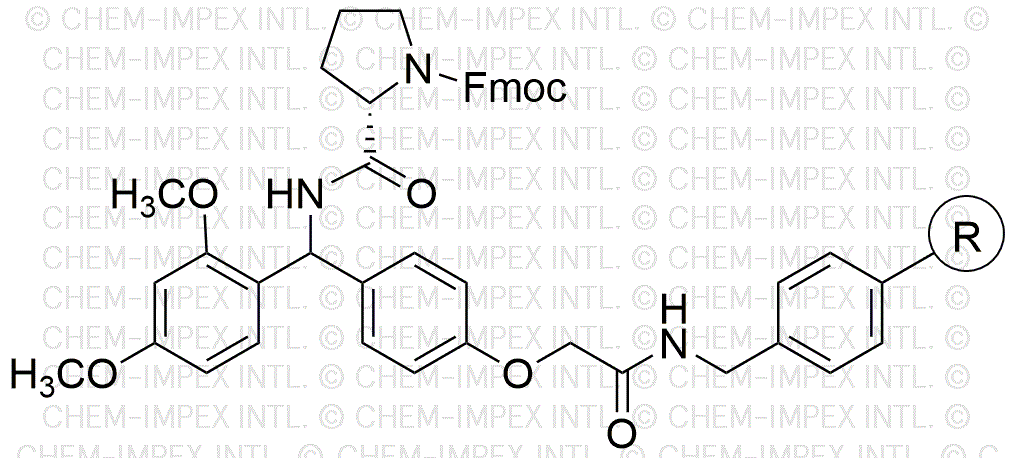Fmoc-L-proline Rink amide AM resin is widely utilized in research focused on:
- Peptide Synthesis: This resin is essential for solid-phase peptide synthesis, allowing researchers to create complex peptides efficiently and with high purity.
- Drug Development: It plays a crucial role in the pharmaceutical industry for developing peptide-based drugs, offering a streamlined approach to synthesizing therapeutic compounds.
- Bioconjugation: The resin can be used in bioconjugation processes, enabling the attachment of peptides to various biomolecules for targeted drug delivery systems.
- Research in Protein Engineering: It aids in the design and synthesis of modified peptides, facilitating studies in protein interactions and functions.
- Custom Peptide Libraries: Researchers utilize this resin to create diverse peptide libraries for screening potential drug candidates, enhancing the discovery process.
General Information
Properties
Safety and Regulations
Applications
Fmoc-L-proline Rink amide AM resin is widely utilized in research focused on:
- Peptide Synthesis: This resin is essential for solid-phase peptide synthesis, allowing researchers to create complex peptides efficiently and with high purity.
- Drug Development: It plays a crucial role in the pharmaceutical industry for developing peptide-based drugs, offering a streamlined approach to synthesizing therapeutic compounds.
- Bioconjugation: The resin can be used in bioconjugation processes, enabling the attachment of peptides to various biomolecules for targeted drug delivery systems.
- Research in Protein Engineering: It aids in the design and synthesis of modified peptides, facilitating studies in protein interactions and functions.
- Custom Peptide Libraries: Researchers utilize this resin to create diverse peptide libraries for screening potential drug candidates, enhancing the discovery process.
Documents
Safety Data Sheets (SDS)
The SDS provides comprehensive safety information on handling, storage, and disposal of the product.
Product Specification (PS)
The PS provides a comprehensive breakdown of the product’s properties, including chemical composition, physical state, purity, and storage requirements. It also details acceptable quality ranges and the product's intended applications.
Certificates of Analysis (COA)
Search for Certificates of Analysis (COA) by entering the products Lot Number. Lot and Batch Numbers can be found on a product’s label following the words ‘Lot’ or ‘Batch’.
*Catalog Number
*Lot Number
Certificates Of Origin (COO)
This COO confirms the country where the product was manufactured, and also details the materials and components used in it and whether it is derived from natural, synthetic, or other specific sources. This certificate may be required for customs, trade, and regulatory compliance.
*Catalog Number
*Lot Number
Safety Data Sheets (SDS)
The SDS provides comprehensive safety information on handling, storage, and disposal of the product.
DownloadProduct Specification (PS)
The PS provides a comprehensive breakdown of the product’s properties, including chemical composition, physical state, purity, and storage requirements. It also details acceptable quality ranges and the product's intended applications.
DownloadCertificates of Analysis (COA)
Search for Certificates of Analysis (COA) by entering the products Lot Number. Lot and Batch Numbers can be found on a product’s label following the words ‘Lot’ or ‘Batch’.
*Catalog Number
*Lot Number
Certificates Of Origin (COO)
This COO confirms the country where the product was manufactured, and also details the materials and components used in it and whether it is derived from natural, synthetic, or other specific sources. This certificate may be required for customs, trade, and regulatory compliance.


